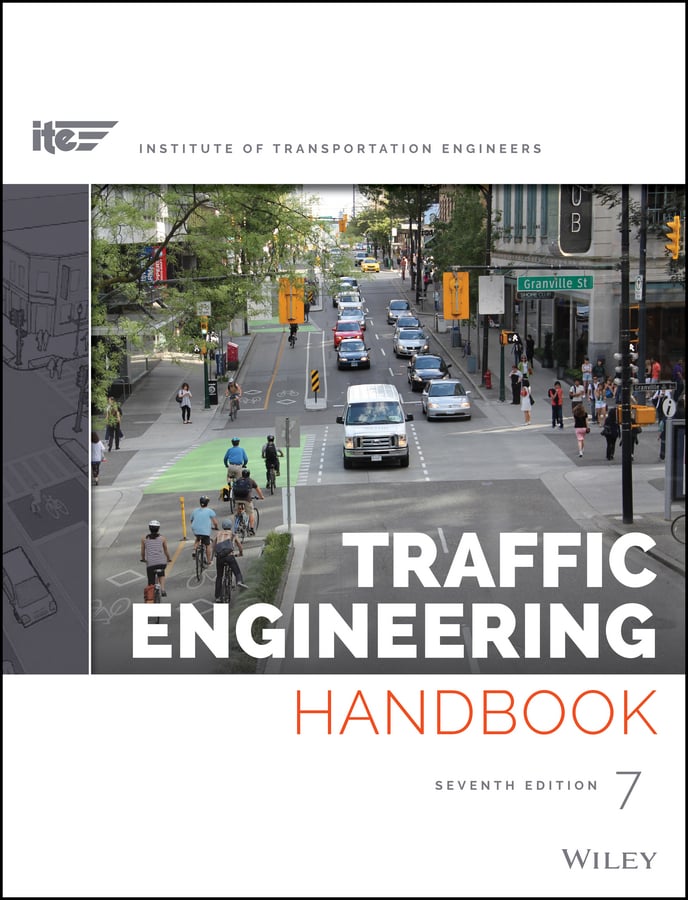


Traffic Engineering Handbook, Seventh Edition is a newly revised text that builds upon the reputation as the go-to source of essential traffic engineering solutions that this book has maintained for the past 70 years. The updated content reflects changes in key industry standards, and shines a spotlight on the needs of all users, the design of context-sensitive roadways, and the development of more sustainable transportation solutions. Additionally, this resource features a new organizational structure that promotes a more functionally-driven, multimodal approach to planning, designing, and implementing transportation solutions.
A branch of civil engineering, traffic engineering concerns the safe and efficient movement of people and goods along roadways. Traffic flow, road geometry, sidewalks, crosswalks, cycle facilities, shared lane markings, traffic signs, traffic lights, and more—all of these elements must be considered when designing public and private sector transportation solutions. Explore the fundamental concepts of traffic engineering as they relate to operation, design, and management Access updated content that reflects changes in key industry-leading resources, such as the Highway Capacity Manual (HCM), Manual on Uniform Traffic Control Devices (MUTCD), AASSHTO Policy on Geometric Design, Highway Safety Manual (HSM), and Americans with Disabilities Act Understand the current state of the traffic engineering field Leverage revised information that homes in on the key topics most relevant to traffic engineering in today's world, such as context-sensitive roadways and sustainable transportation solutions
Traffic Engineering Handbook, Seventh Edition is an essential text for public and private sector transportation practitioners, transportation decision makers, public officials, and even upper-level undergraduate and graduate students who are studying transportation engineering.